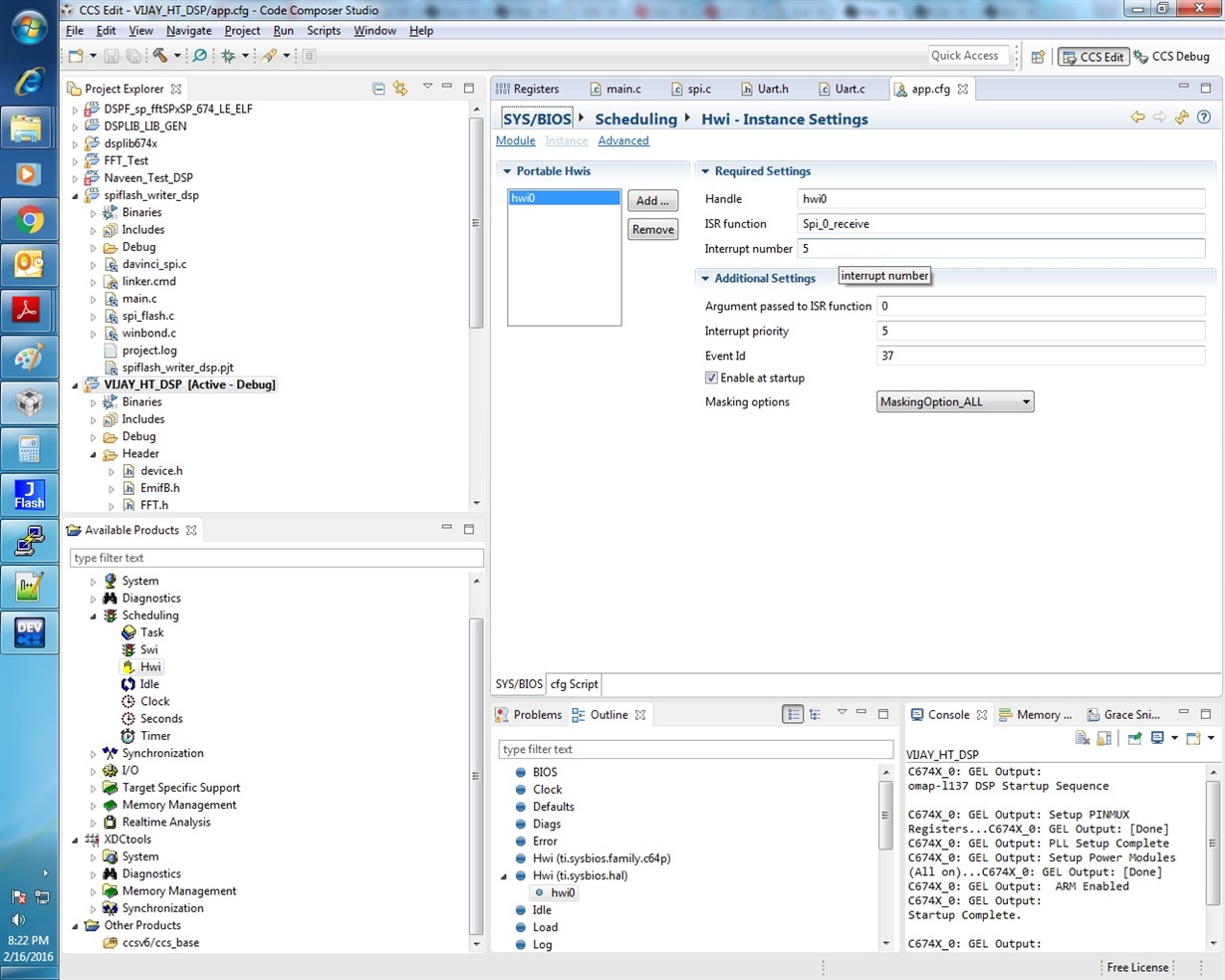Other Parts Discussed in Thread: OMAPL138
Hello All,
I am Using OMAPL137 for my custom application.
I need to communicate through SPI0 as slave with RTOS.
My configurations are as follows
I am not able to receive the interrupt.
My questions are.
1) I assume that as soon as Chip Select goes low interrupt will be generated for Slave. Is my understanding correct?
If not when the interrupt will be generated? and How DSP will receive interrupt?
2) Any other configuration is required for Interrupt setting In RTOS other than above mentioned setting?
3) How to debug in the RTOS whether is it able to receive the interrupt?
4) How to generate the interrupt from external device(specifically SPI0).
Waiting for your reply as soon as possible.
Thanks And Regards,
Vijay Hiremath

